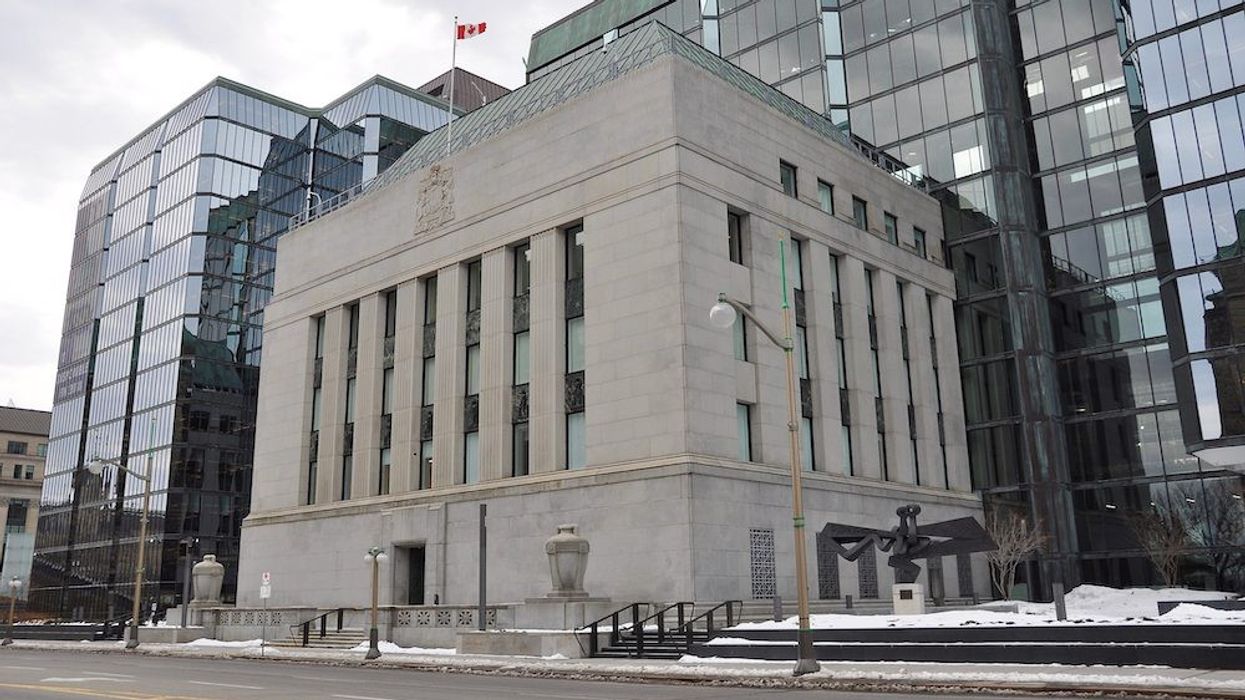After nearly a year of consecutive interest rate hikes and soaring inflation, hope is on the horizon for Canadians.
A number of financial experts and institutions expect inflation to ease over the course of 2023, spurring the Bank of Canada (BoC) to cut interest rates by year-end.
On Monday, the BoC published the results of its Market Participants Survey. Conducted in Q4 2022, the results are based on responses from roughly 30 financial market participants, including senior economists and strategists at banks, pension funds, asset management firms, and insurance companies.
The median response from participants was an expectation that the Bank will cut interest rates by 25 basis points in October and again in December, bringing the policy rate down to 4% by the end of 2023.
Jean-François Perrault, Senior Vice-President and Chief Economist at Scotiabank, took a more reserved stance in an economic forecast published yesterday, predicting a 25-basis-point cut by year-end.
In contrast, Rennie Intelligence provided a more positive prediction. A recent report from the Vancouver-based market insight group forecasts an initial 25-basis-point cut in the summer, followed by two additional cuts in the fall, bringing the year-end policy rate to 3.75%.
Currently at 4.5%, the BoC raised interest rates seven times between March and December 2022. When delivering an eight hike in January 2023, the Bank said it planned to hold the policy rate at current levels as it assessed the effects of previous increases. However, it is prepared to raise rates further if needed in order to reign inflation and bring it closer to the BoC's 2% target.
Respondents to the BoC survey puts annual total CPI inflation at 2.9% at the end of 2023, and 2.2% by the end of 2024, while Scotiabank expects inflation to average about 4% this year and hit the BoC's 2% target in mid-2024.
Again providing a sunnier outlook, Rennie Intelligence predicts that headline inflation will fall "substantially" in 2023 -- down to 3.1% by April, and reaching the target range shortly thereafter.
After peaking at 8.1% in June 2022, annual inflation has slowly but steadily declined, reaching 6.3% in December largely due to falling gas prices.
While Scotiabank remains of the view that Canada will experience a "very mild" recession, the downward trend in inflation and greater-than-expected economic resilience have pushed the expected contraction from Q1 to Q3 2023. Scotiabank forecasts real GDP growth of 1.1% for 2023 -- the median response to the BoC's survey predict an annual decline of 0.4% -- and a 0.6% increase in the unemployment rate.
"If inflation continues to moderate in line with our forecast and we only see a mild pullback in economic activity and unemployment, the Bank of Canada will likely have managed to engineer a soft landing," Scotiabank's report reads. "This would be a historic achievement if so."





















